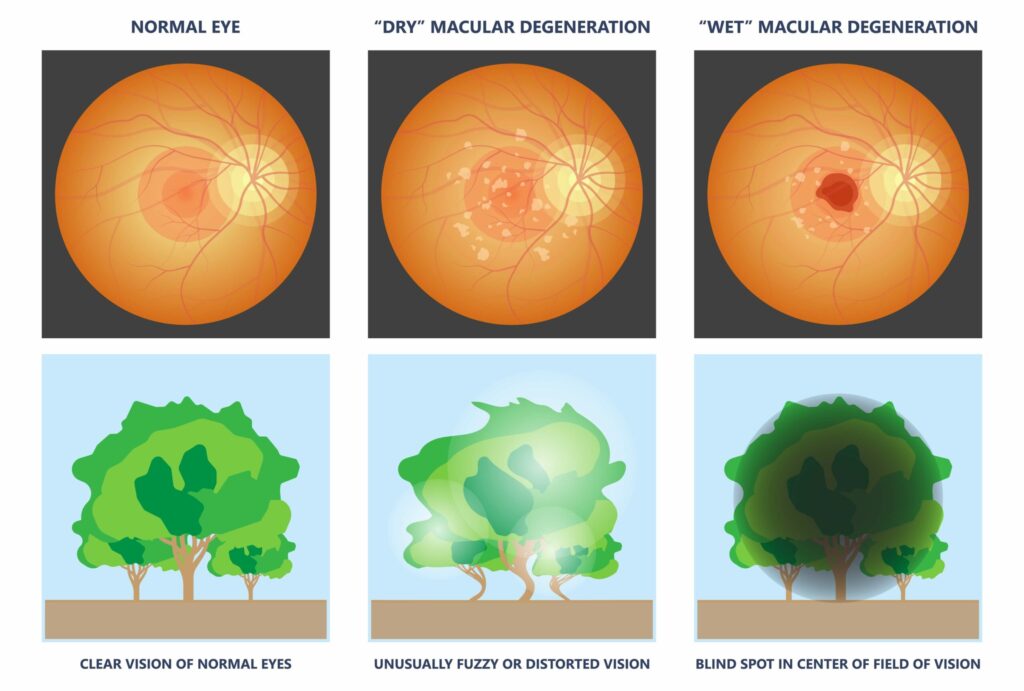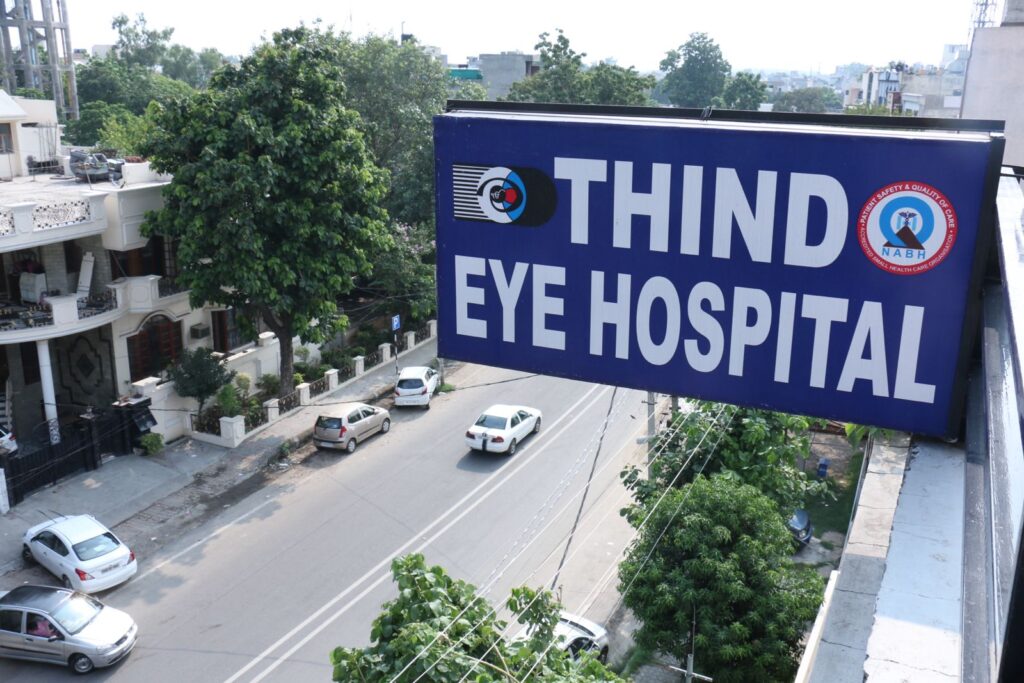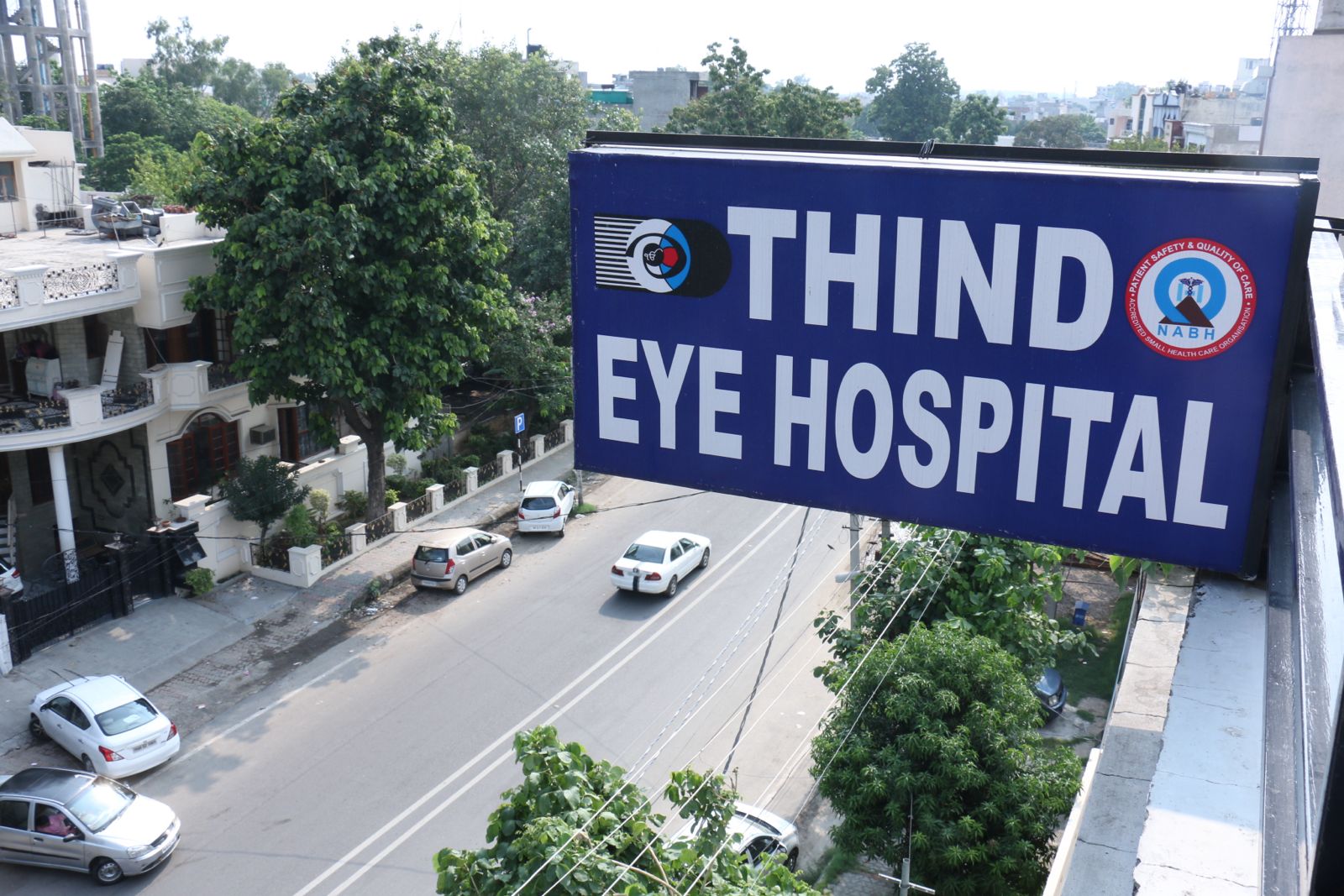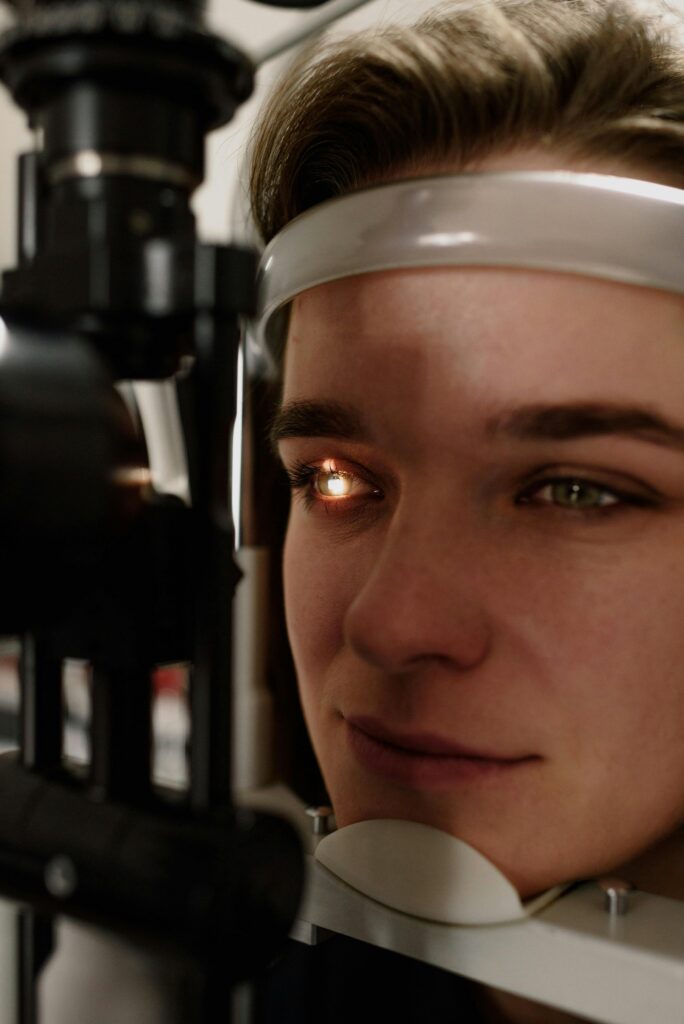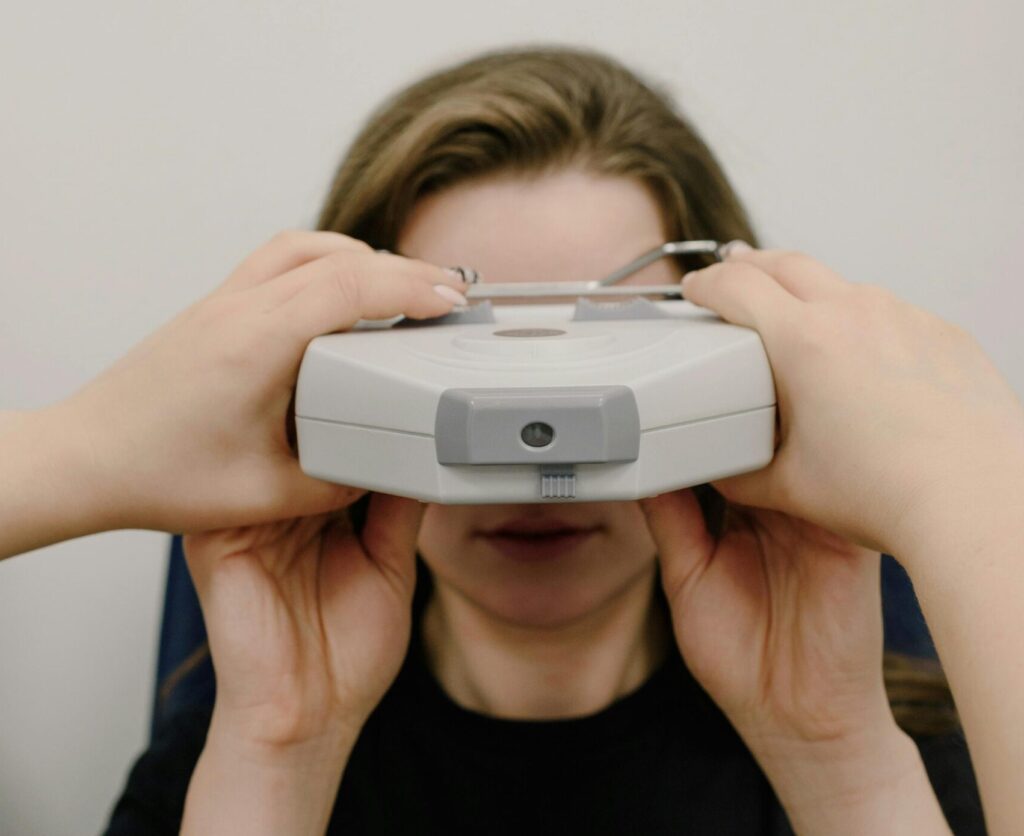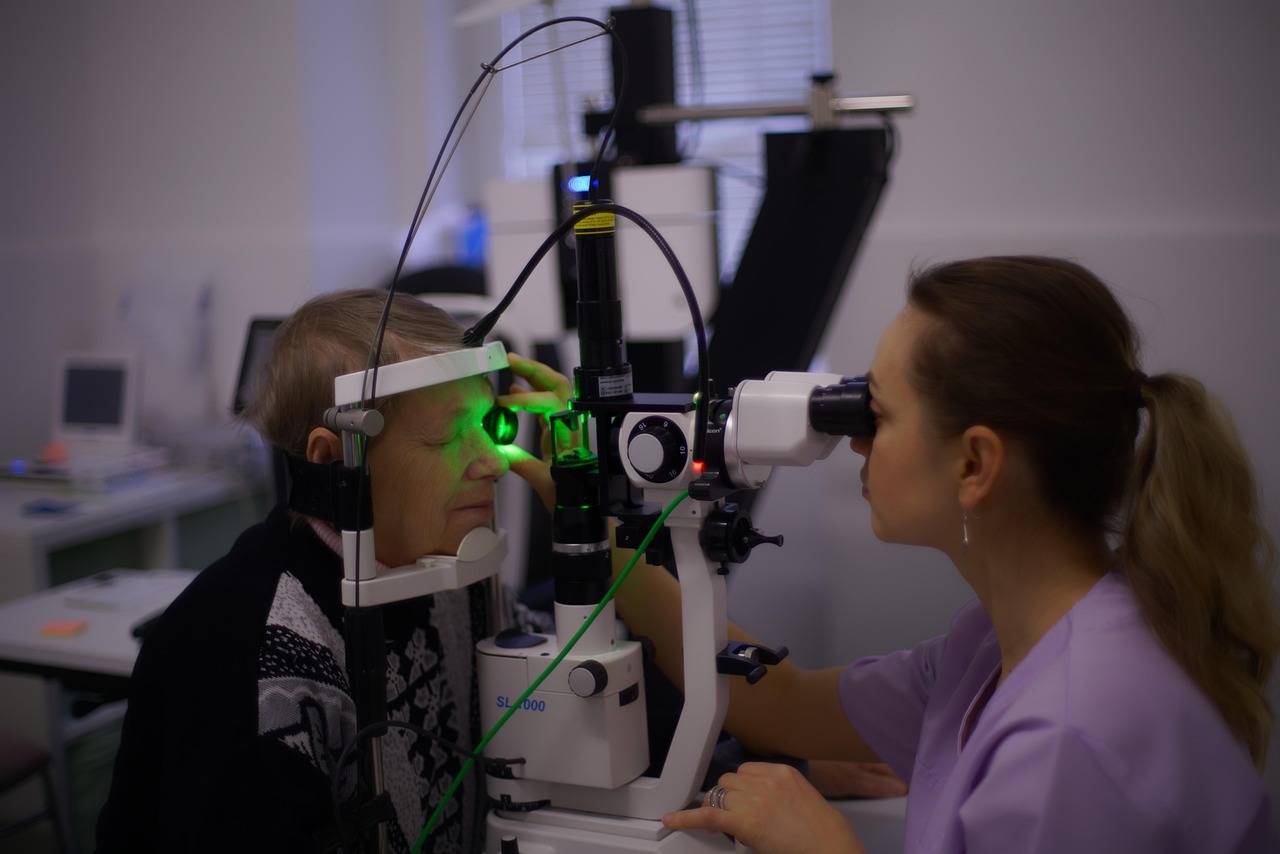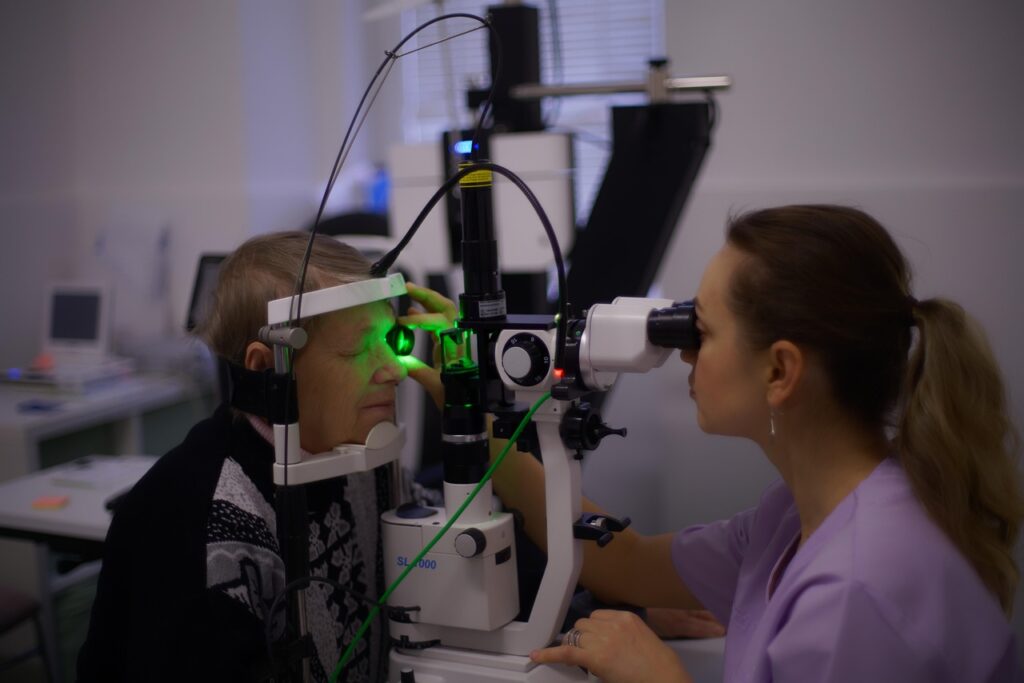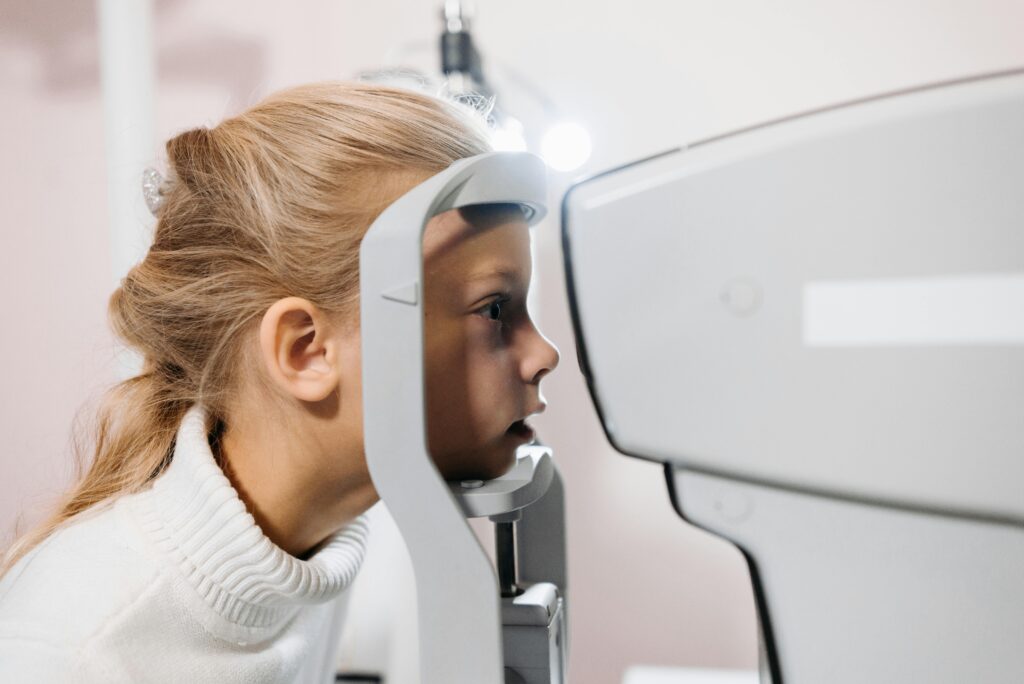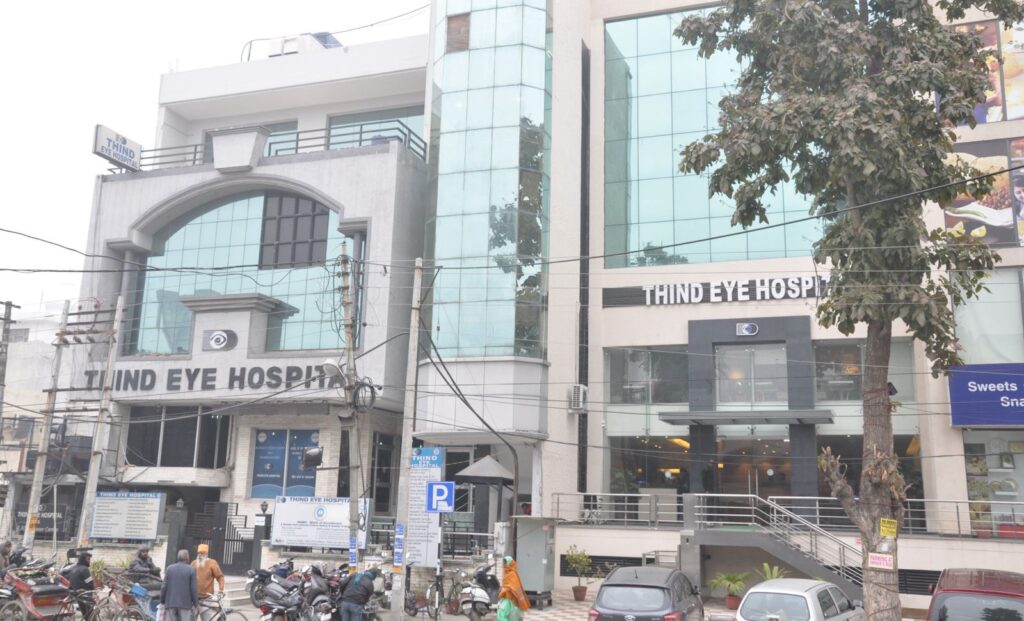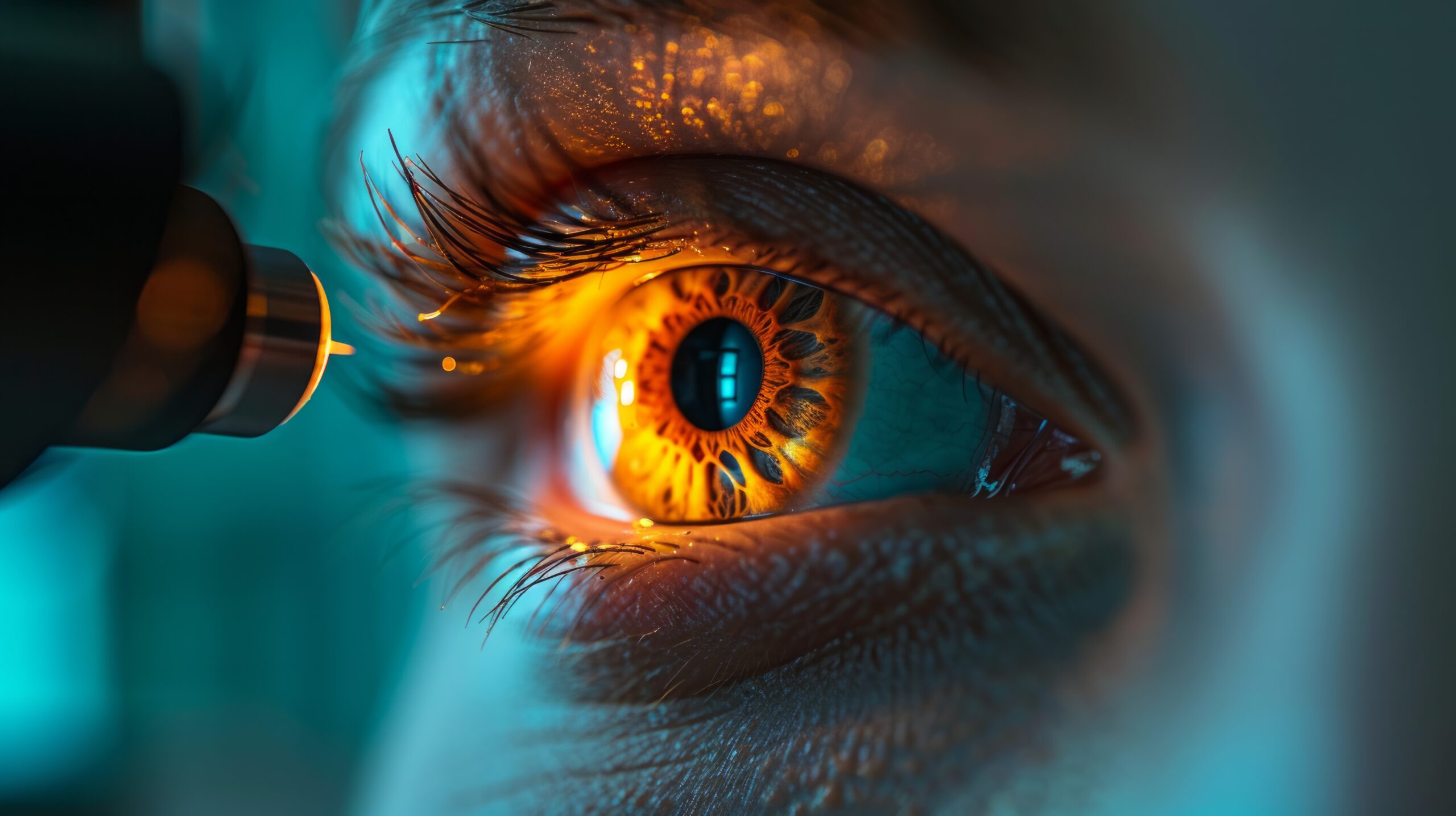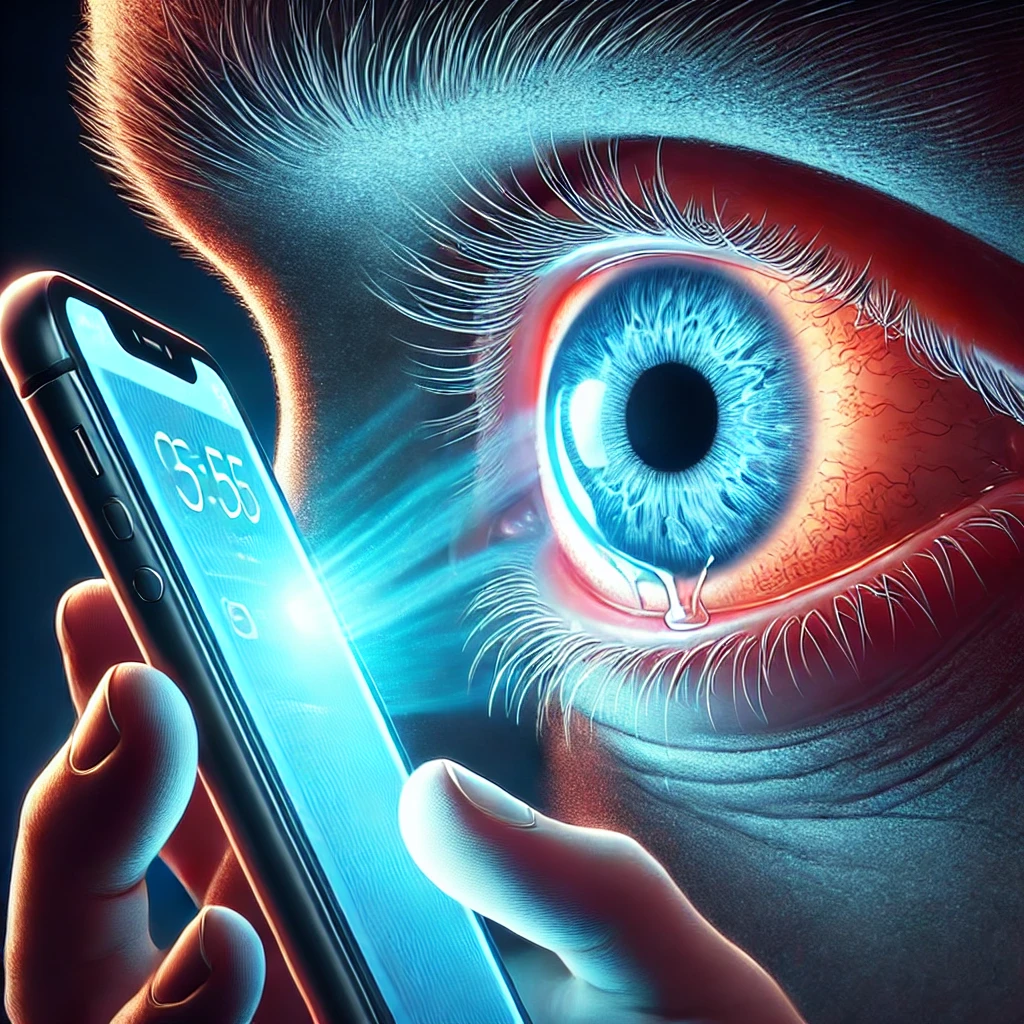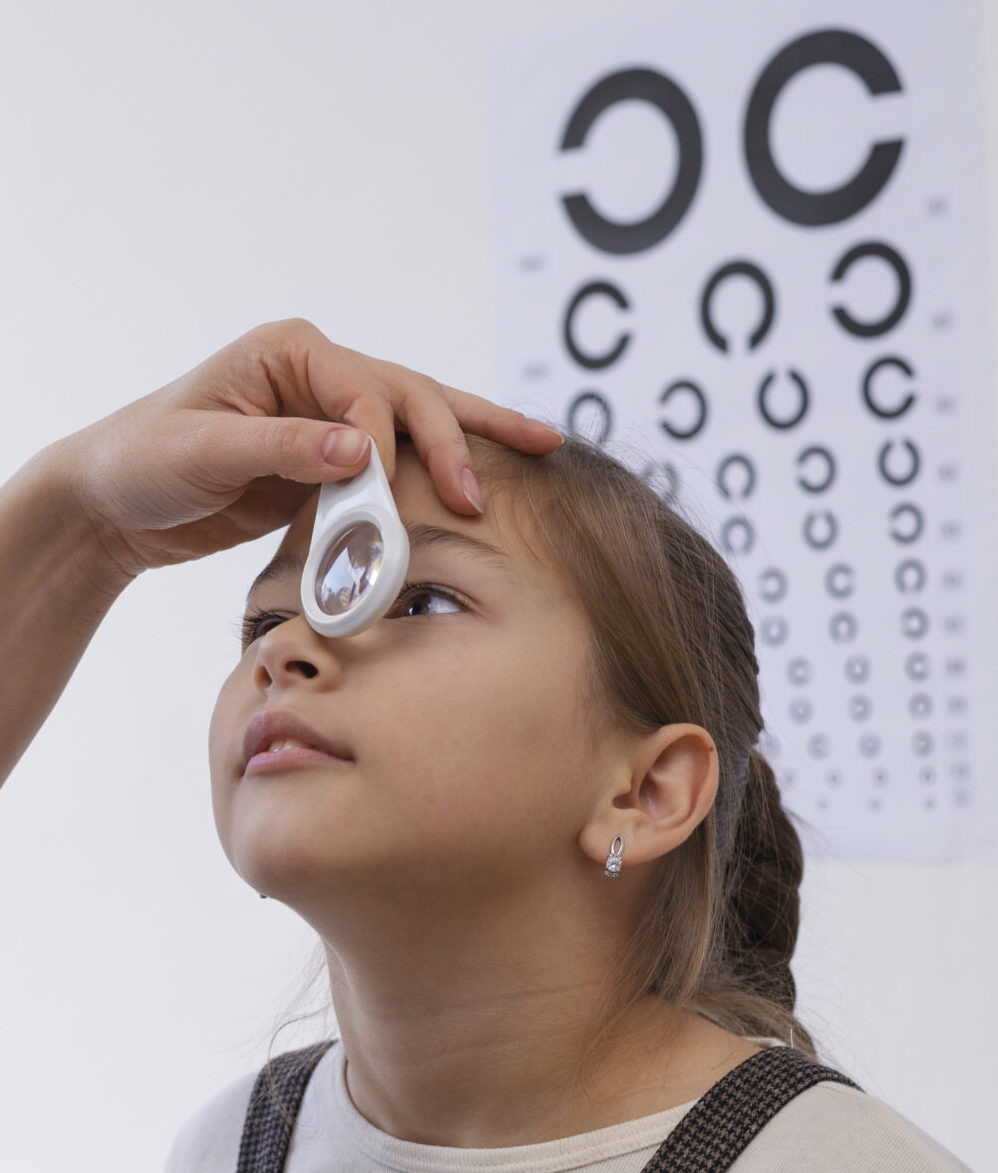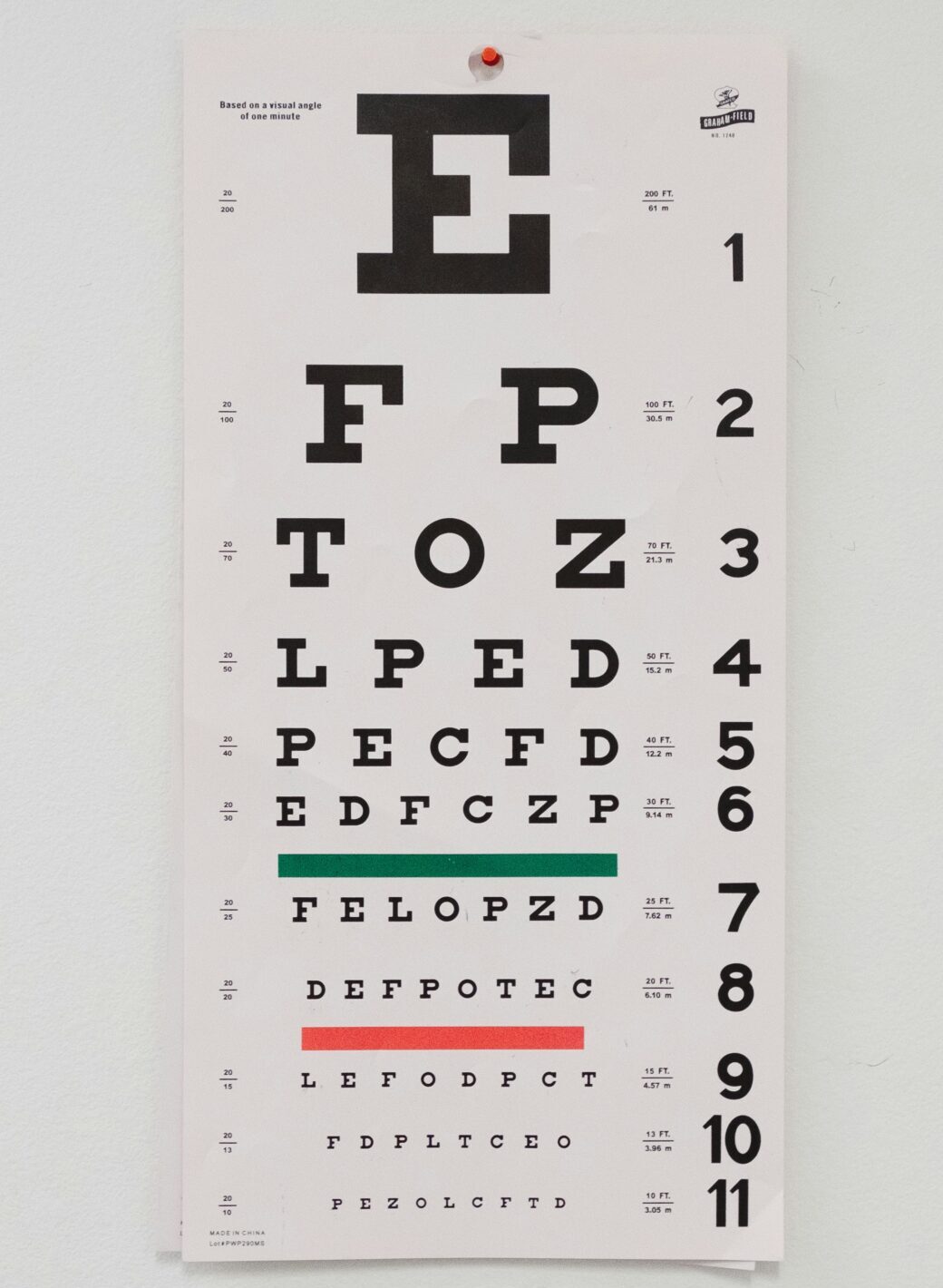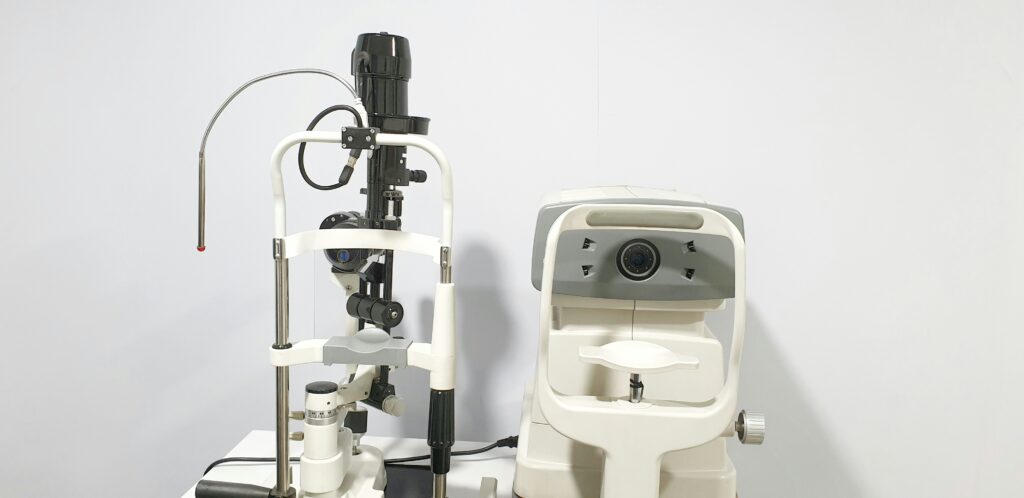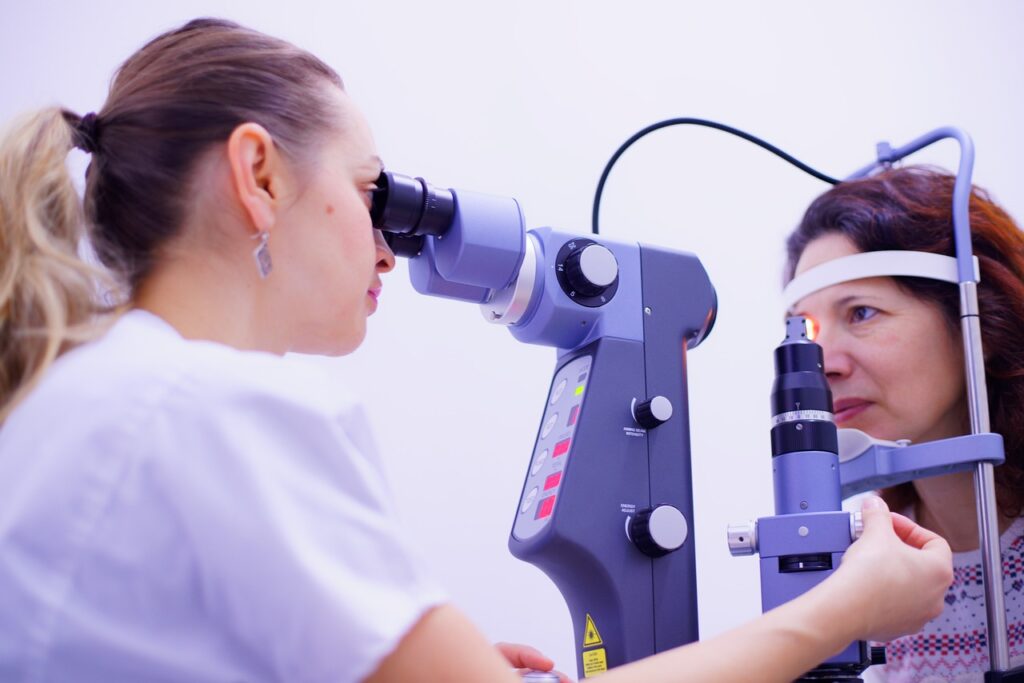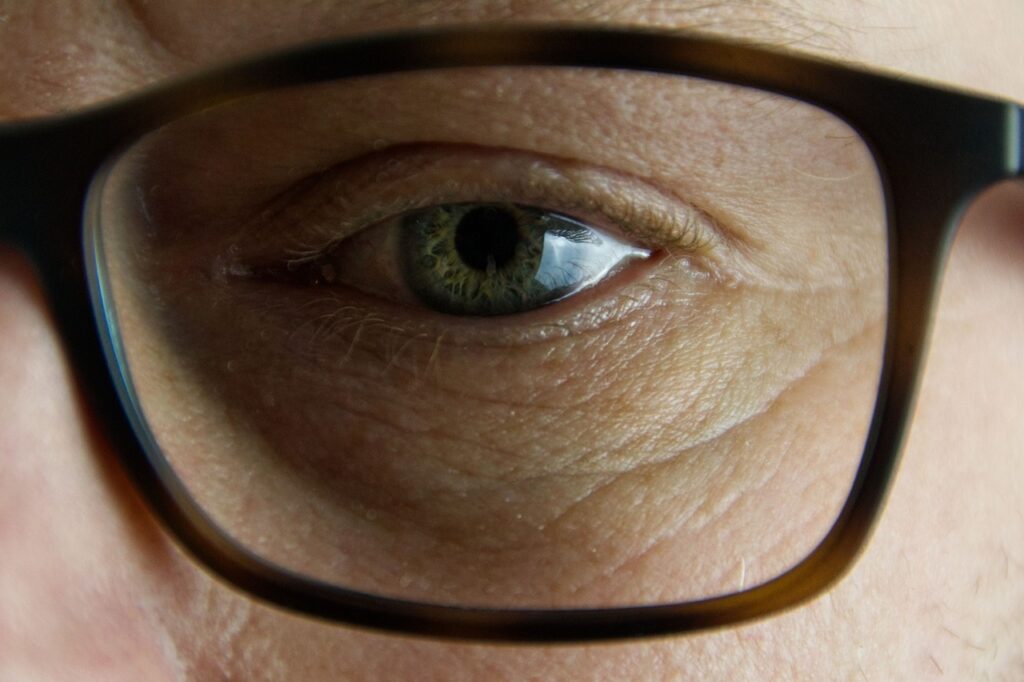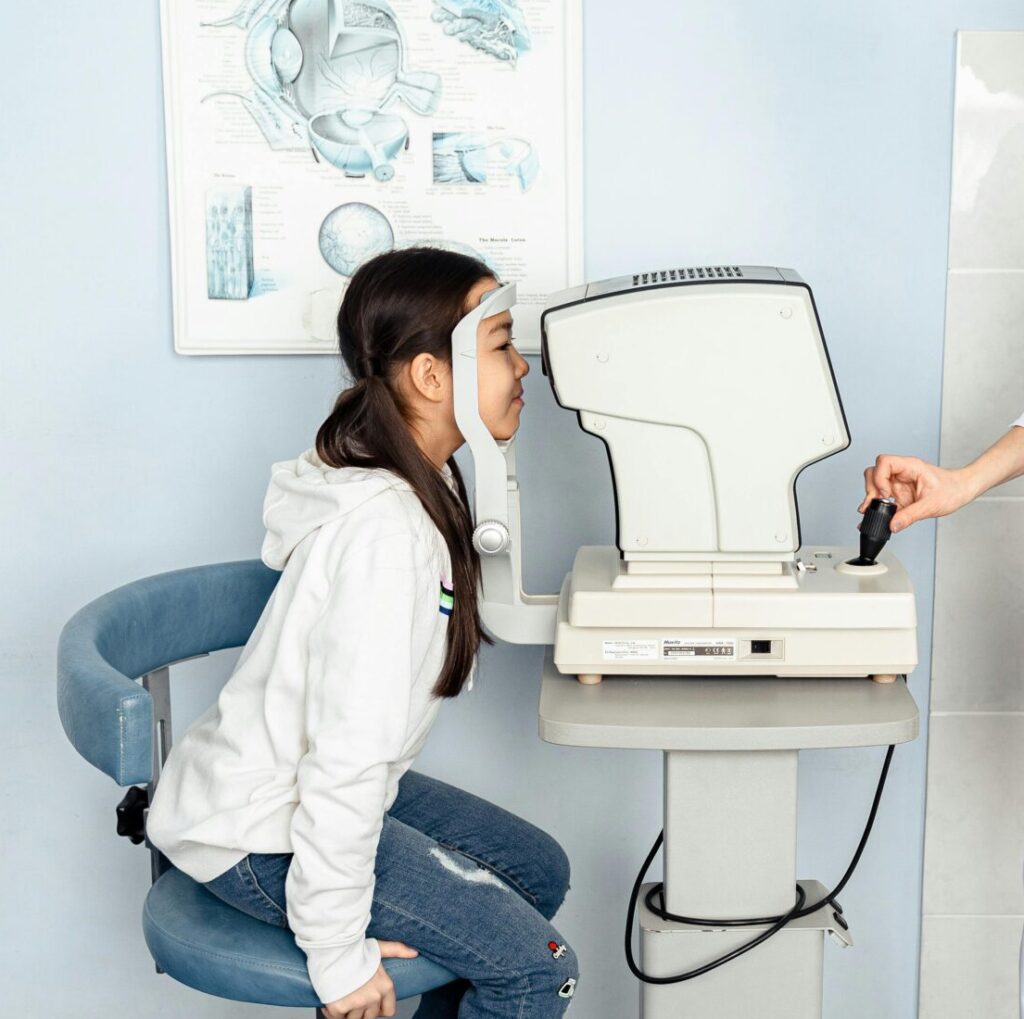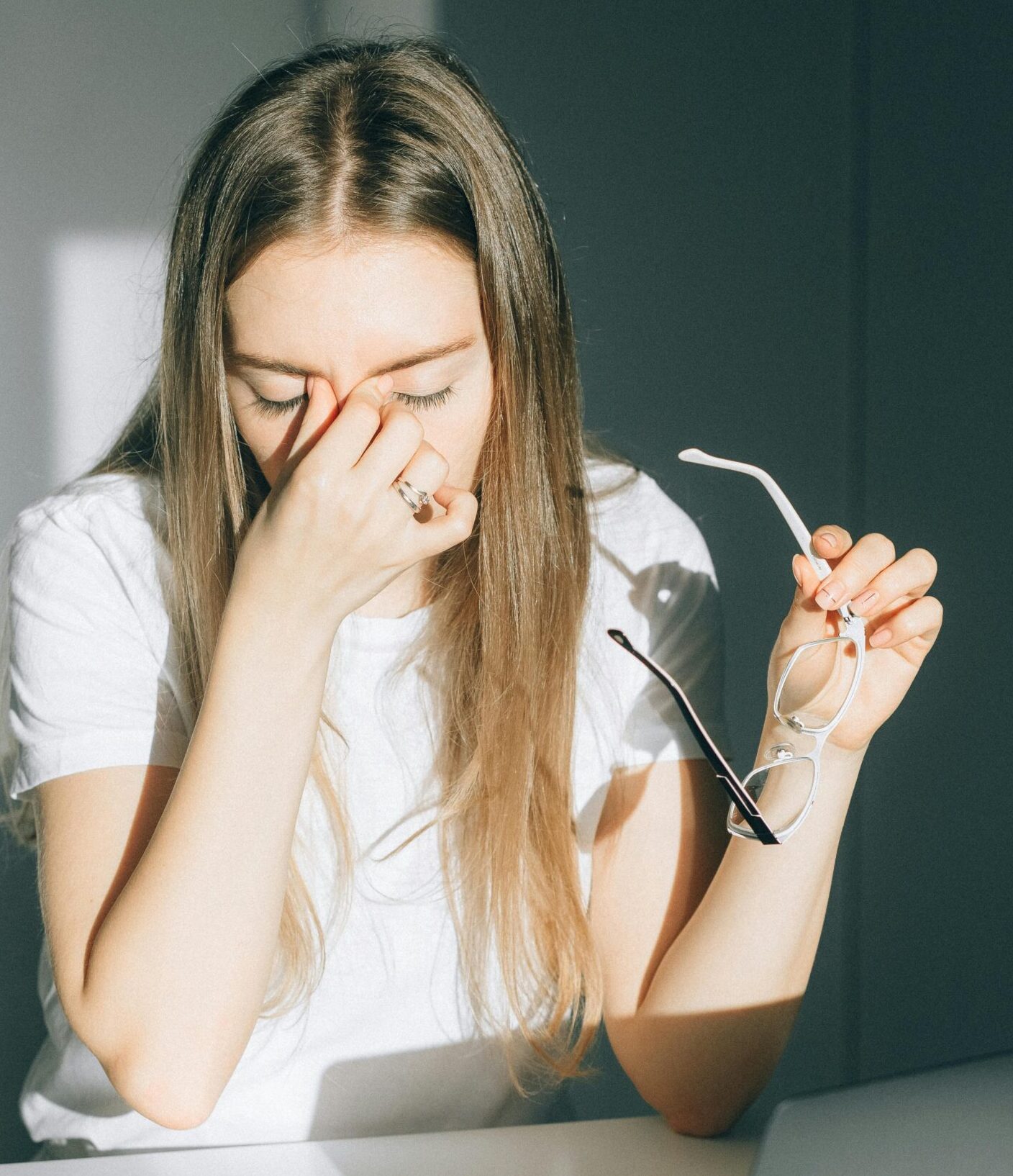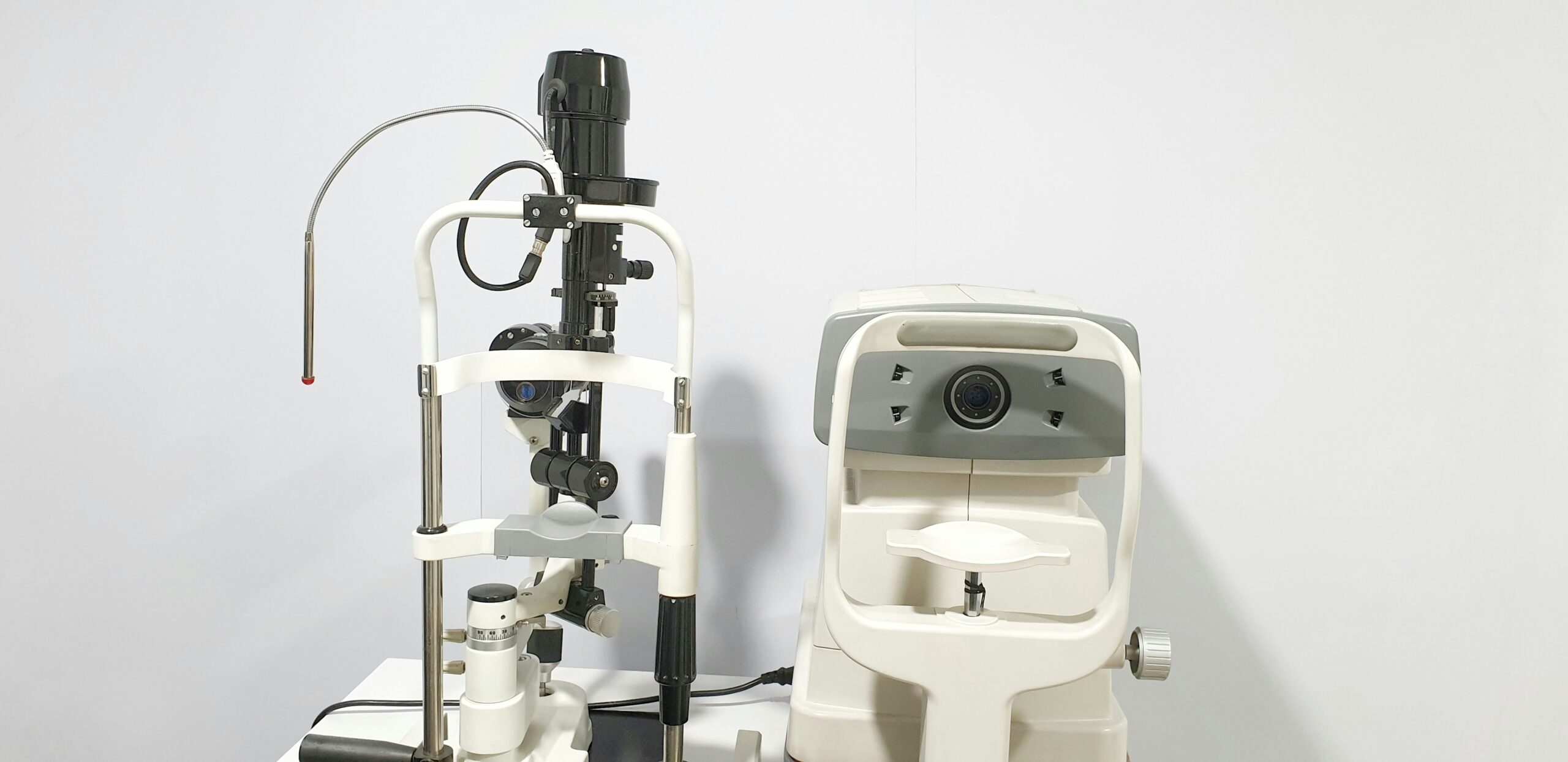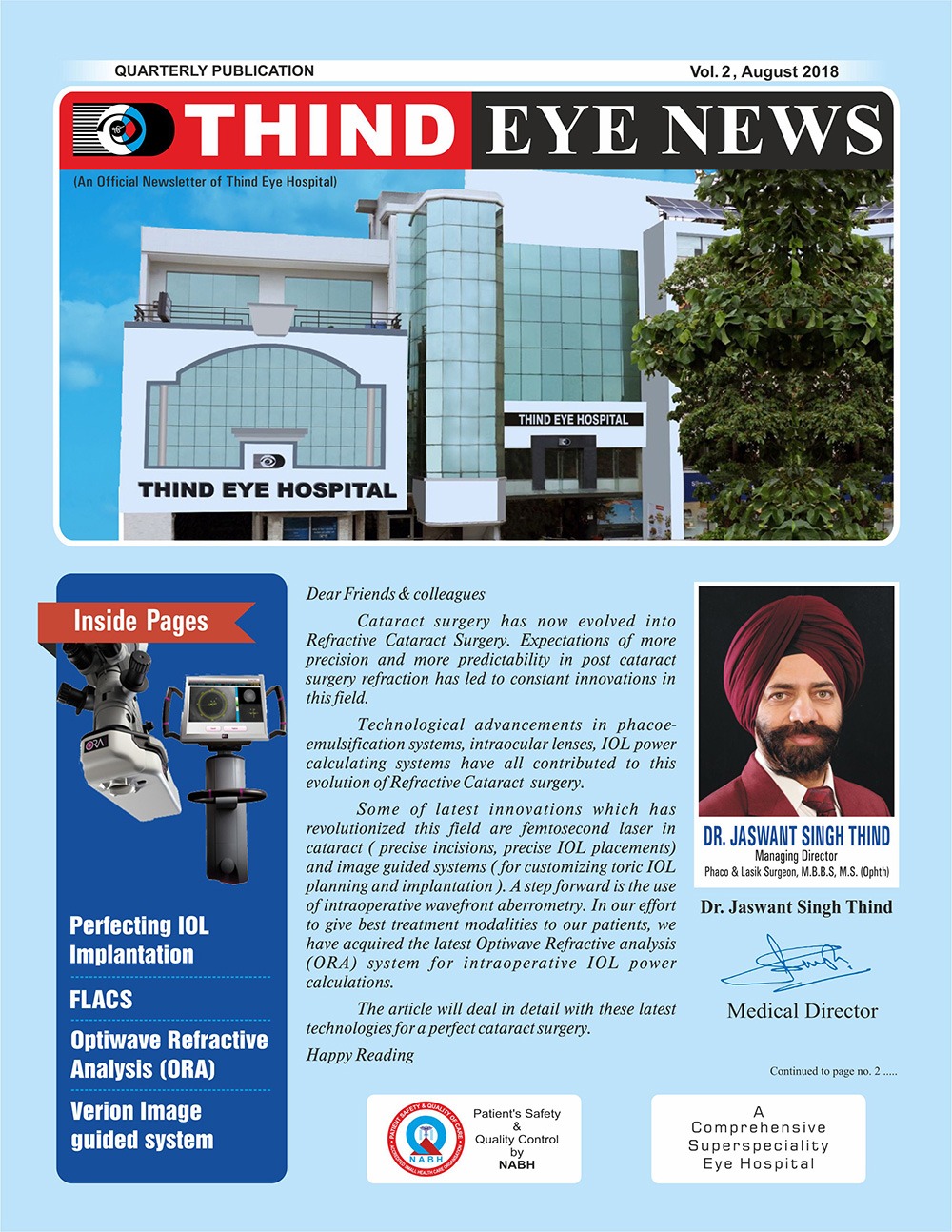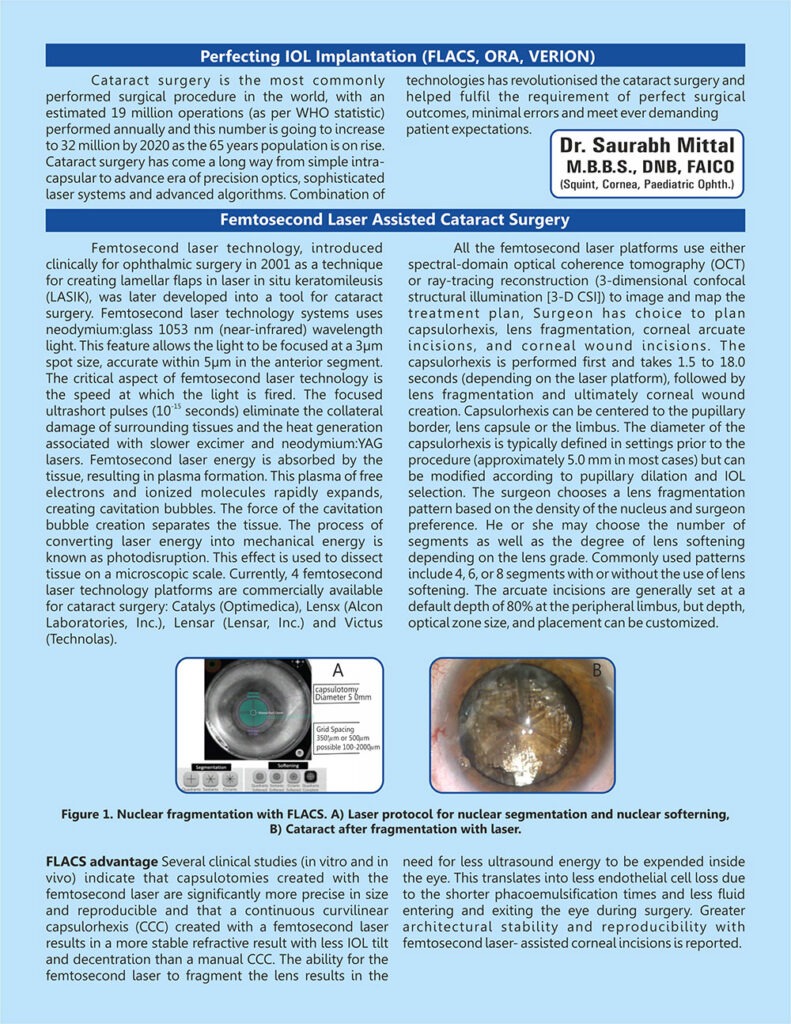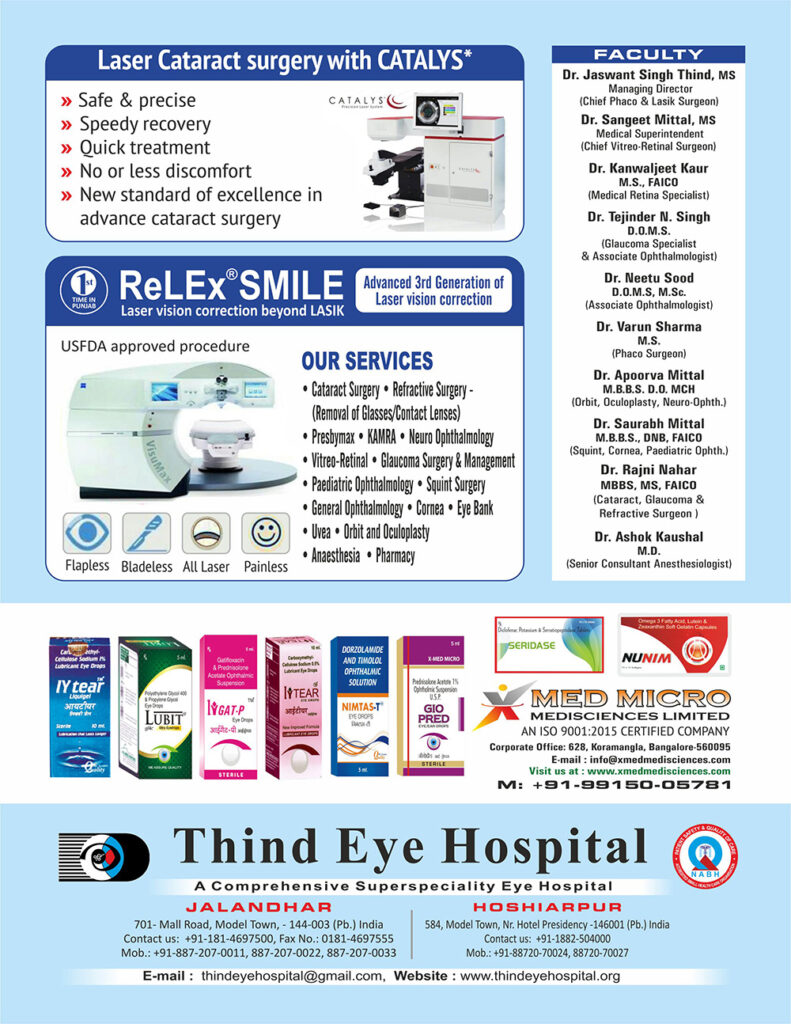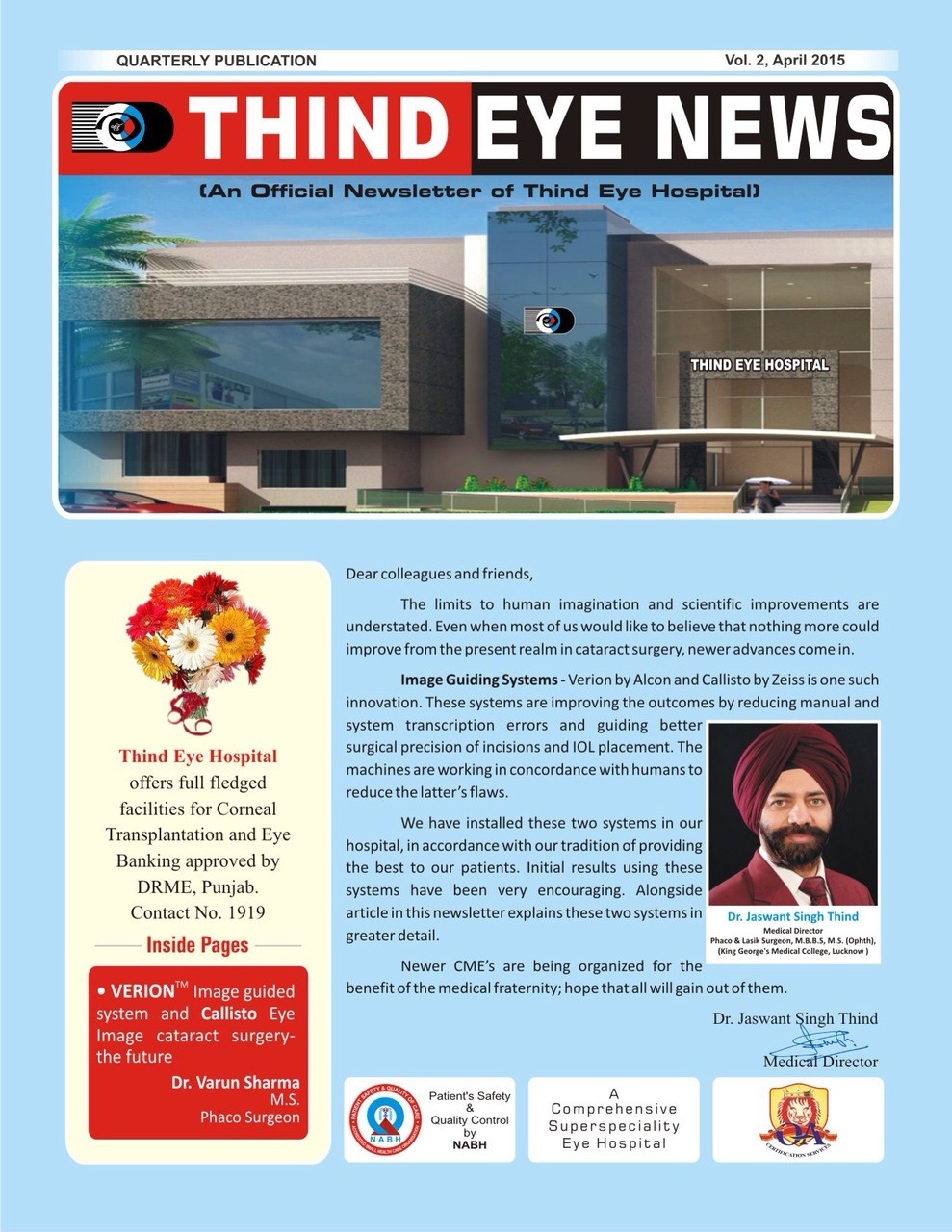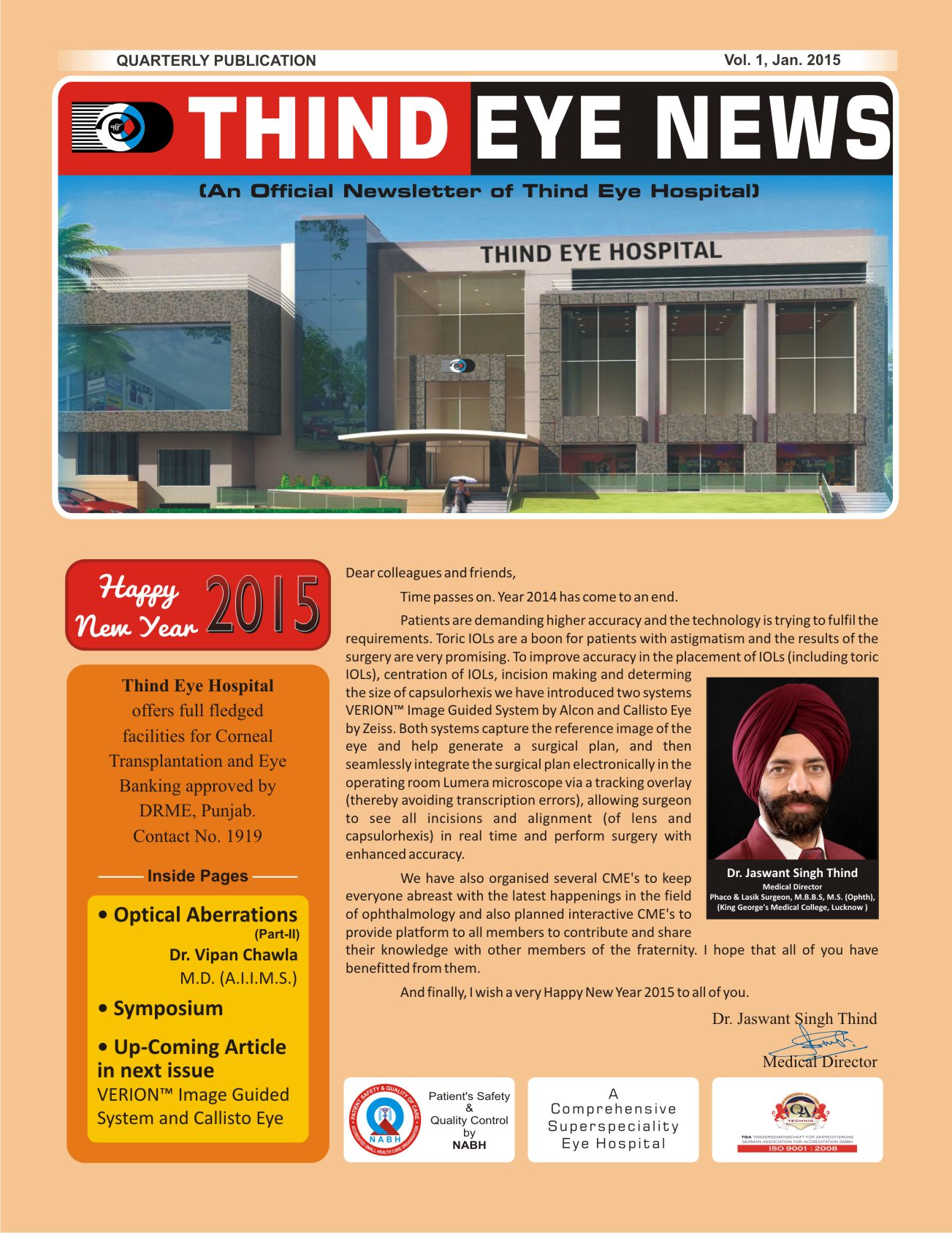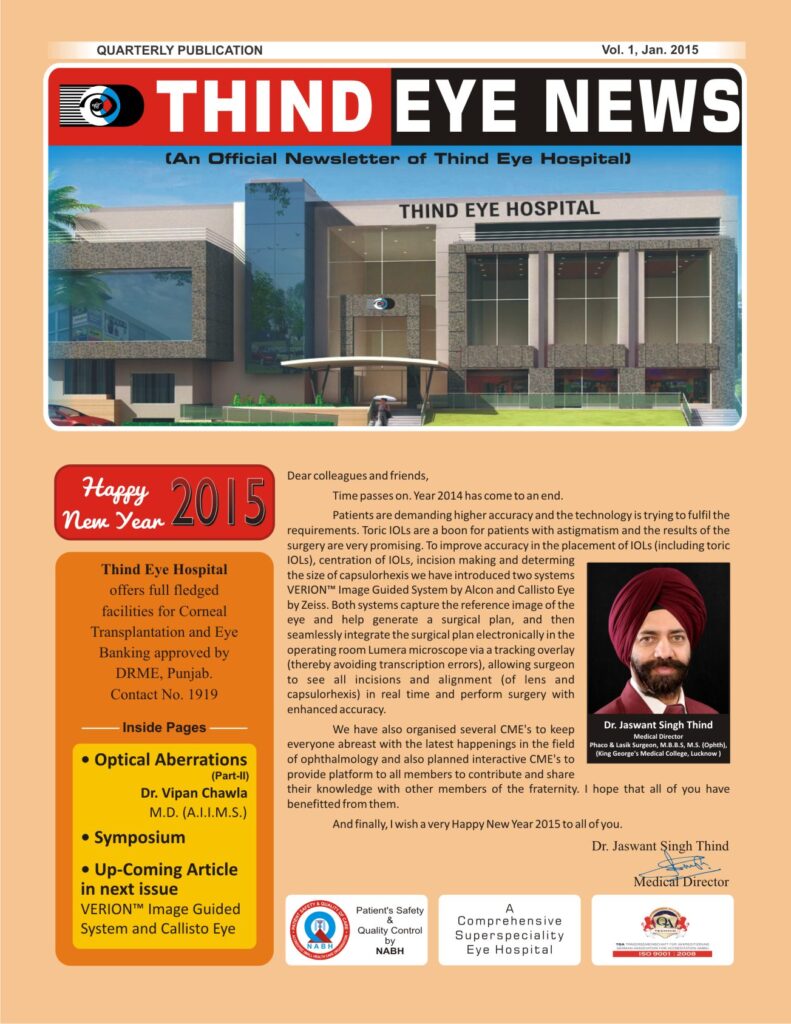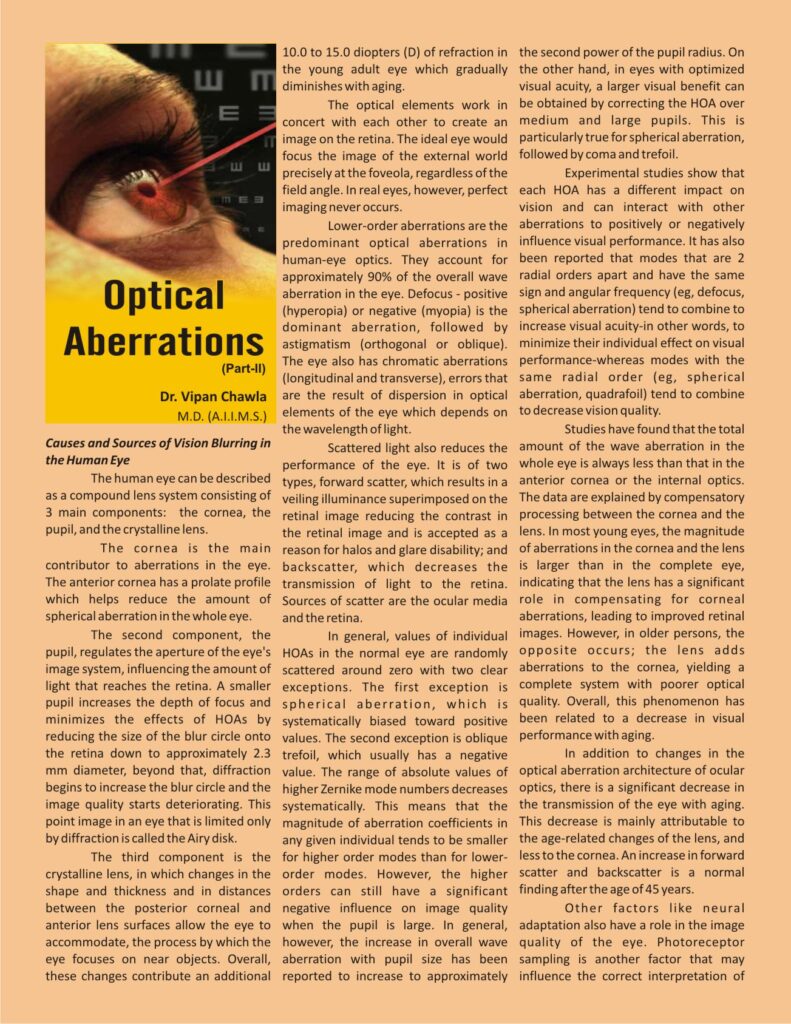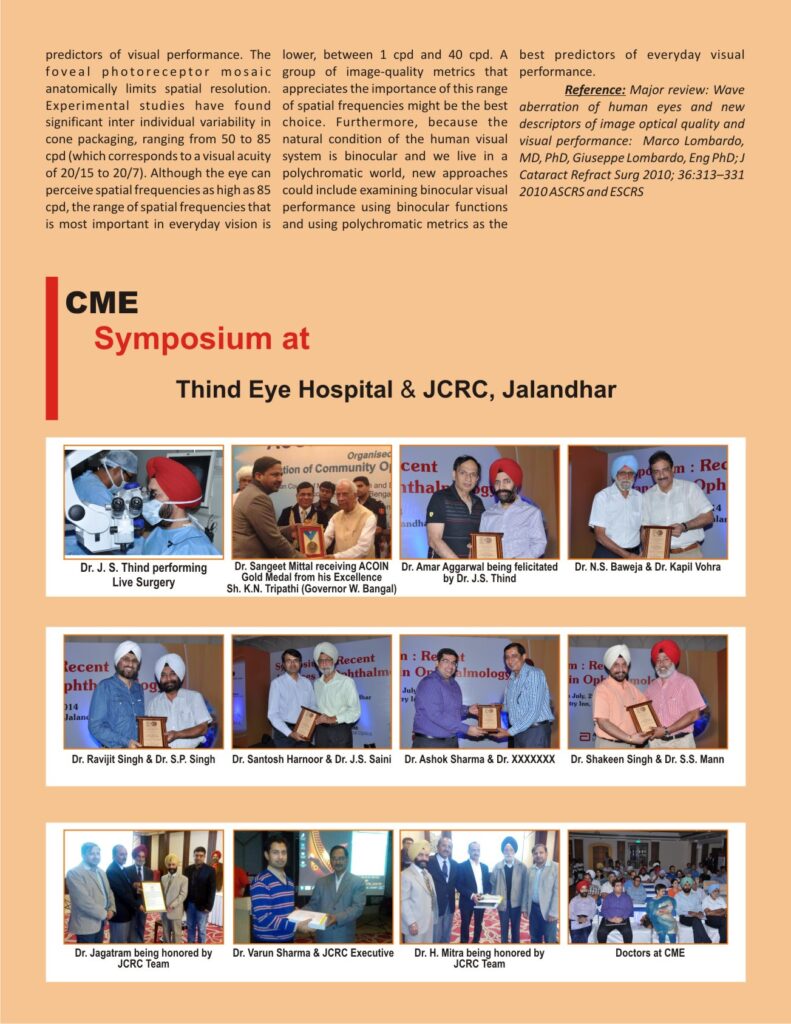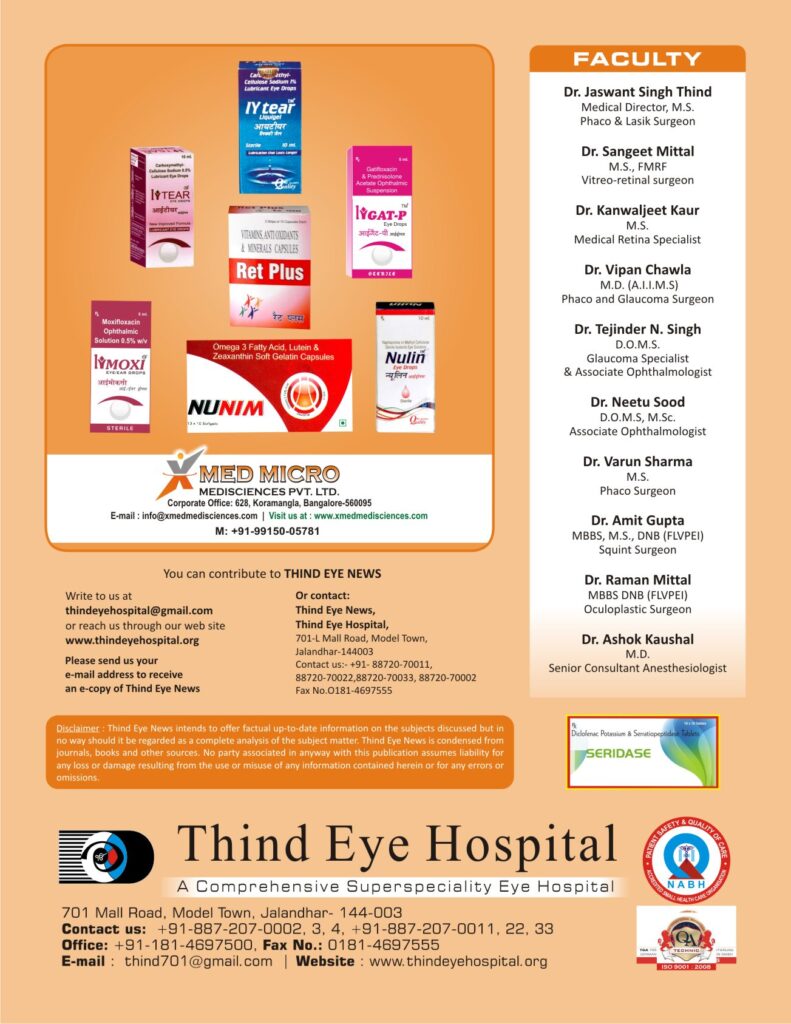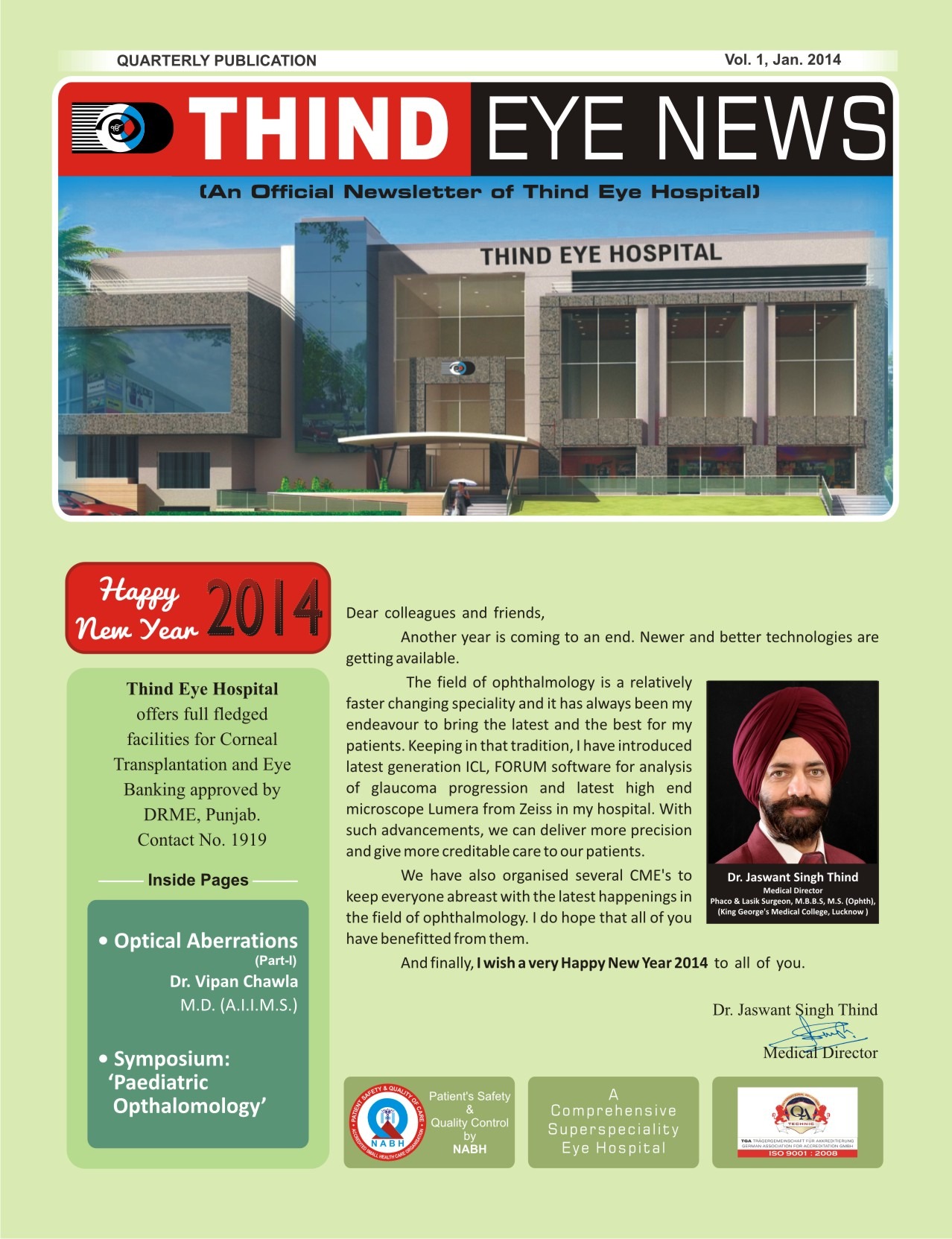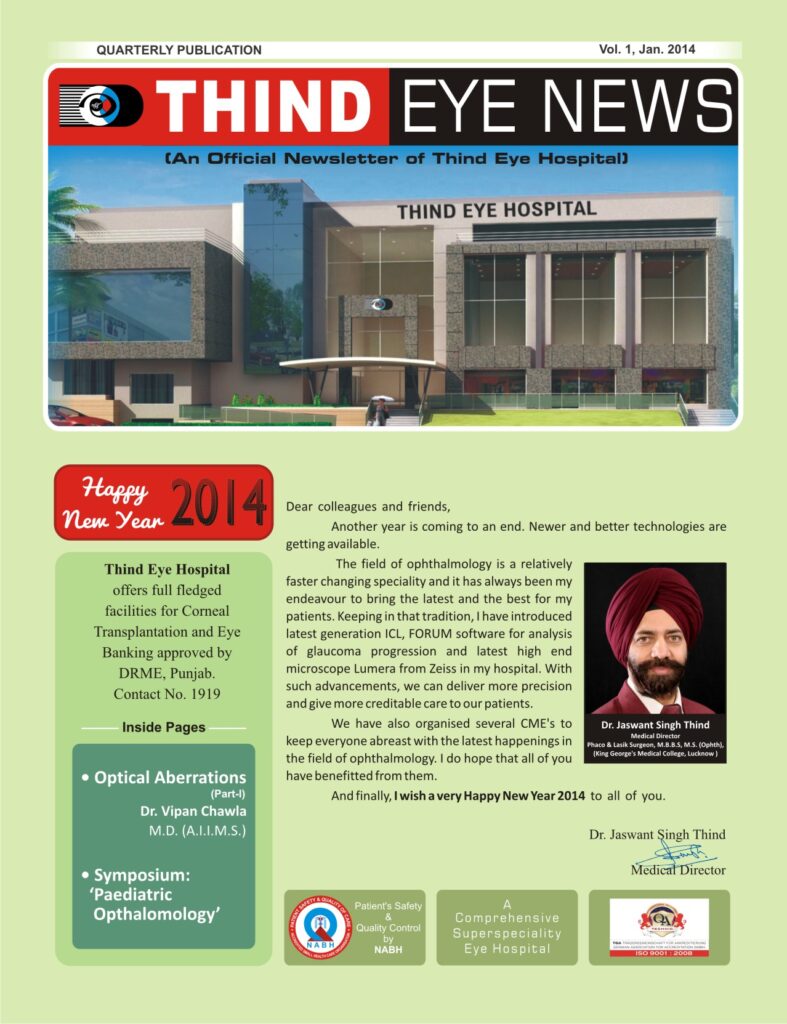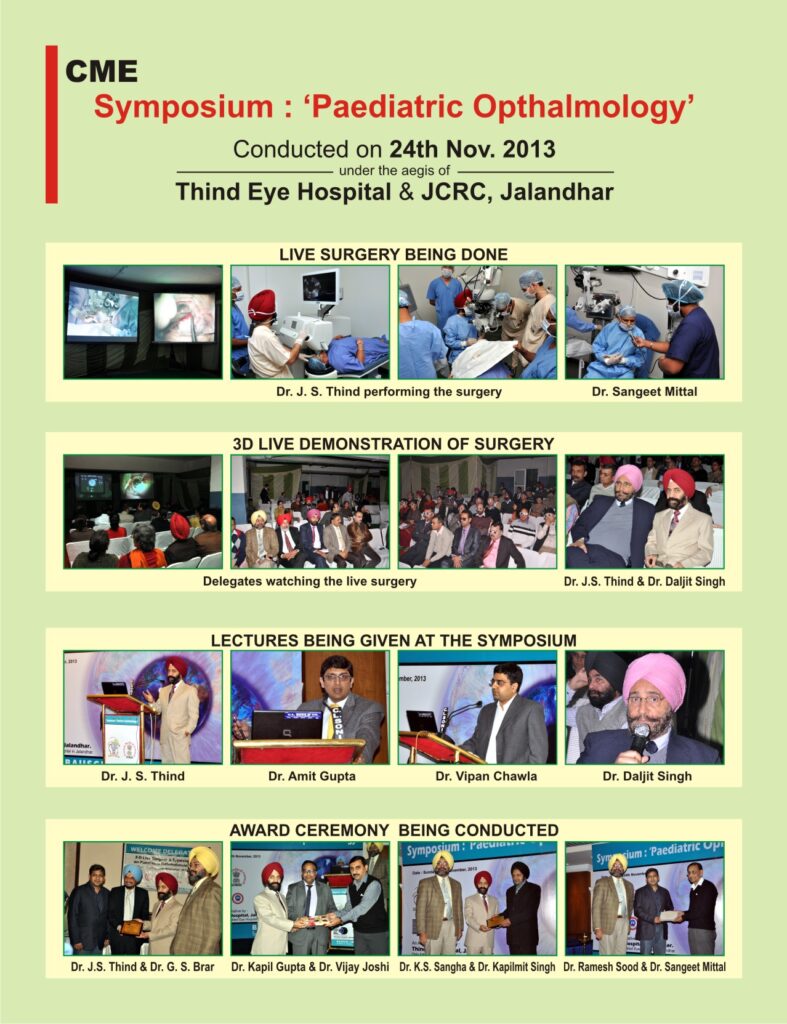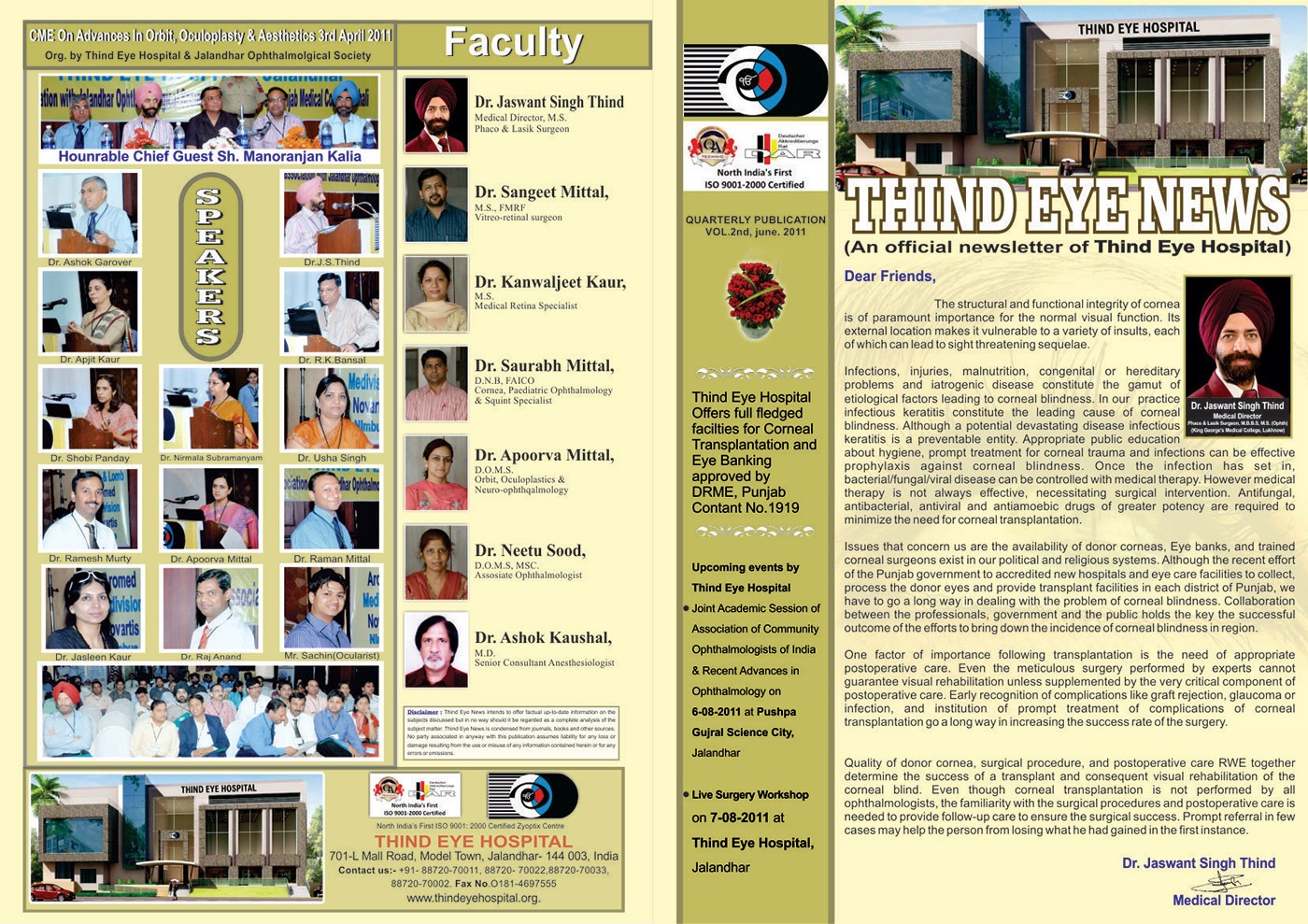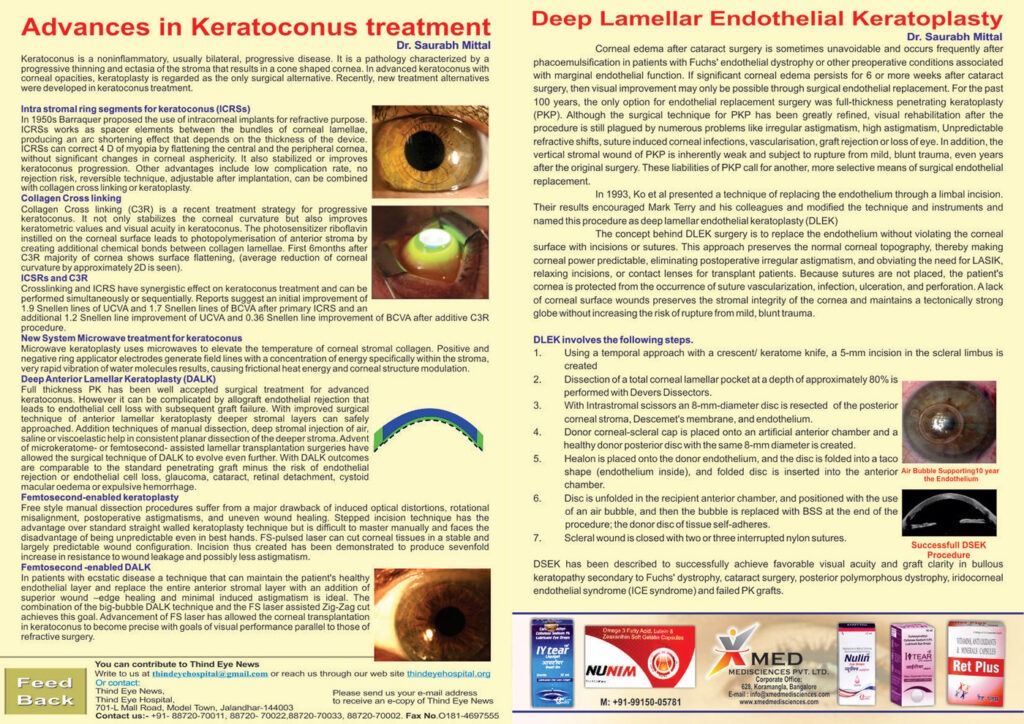Sleep is crucial for overall health, but many people overlook its impact on eye health. Poor sleep habits can lead to eye strain, blurry vision, and even long-term complications like dry eye syndrome. If you experience eye fatigue, redness, or discomfort after a night of insufficient sleep, your eyes are signaling a need for better rest.
At Thind Eye Hospital, we specialize in eye strain relief, dry eye treatment, and vision health tips to help you maintain optimal eye function. In this guide, we’ll explore why sleep is vital for eye health and how you can improve your sleep habits for better vision.

The Connection Between Sleep and Eye Health
Your eyes work tirelessly throughout the day, constantly focusing, adjusting, and processing visual information. Sleep provides essential recovery time, allowing your eyes to:
- Rehydrate and Lubricate – During sleep, your body restores moisture to your eyes, preventing dryness and irritation.
- Reduce Eye Strain – Continuous exposure to screens, reading, or driving can cause eye fatigue, which sleep helps to repair.
- Flush Out Toxins – While you sleep, your eyes clear out waste products that accumulate throughout the day. Poor sleep may lead to puffy, red, or irritated eyes.
- Improve Blood Circulation – Restful sleep enhances oxygen and nutrient delivery to the eyes, keeping them healthy and preventing vision problems.
Lack of sleep doesn’t just cause temporary discomfort—it can also contribute to serious eye conditions over time.
How Poor Sleep Affects Your Eyes
If you consistently get less than 7–8 hours of sleep per night, you may experience:
1. Blurry Vision and Difficulty Focusing
Lack of sleep weakens eye muscles, making it harder to focus on objects. You may notice blurriness or trouble shifting focus between near and far distances.
2. Dry Eye Syndrome
Sleep deprivation reduces tear production, leading to irritation, redness, and a burning sensation. If untreated, chronic dry eye can damage the cornea.
3. Increased Eye Strain
Tired eyes struggle to filter blue light effectively, making them more sensitive to screens and bright lights. This can lead to headaches and difficulty concentrating.
4. Higher Risk of Eye Infections
During sleep, your body replenishes immune defenses, including those that protect your eyes. Insufficient rest weakens immunity, making you more prone to eye infections like conjunctivitis (eye flu).
5. Dark Circles and Puffy Eyes
Sleep deprivation causes fluid retention around the eyes, leading to dark circles and puffiness. This can also signal poor blood circulation and oxygen deprivation in the eye area.
If you’re experiencing persistent blurry vision, dry eyes, or frequent eye infections, consult an eye specialist near you at Thind Eye Hospital for a complete vision assessment.
Tips to Improve Sleep for Better Eye Health
If you’re struggling with poor sleep quality, adopting better habits can protect both your general health and eye health.
1. Establish a Consistent Sleep Schedule
Going to bed and waking up at the same time every day regulates your body’s internal clock, reducing eye strain and fatigue.
2. Reduce Screen Time Before Bed
Exposure to blue light from phones, laptops, and TVs can suppress melatonin, the hormone that regulates sleep. Turn off screens at least an hour before bedtime to allow your eyes to relax.
3. Use the 20-20-20 Rule
If you use screens frequently, follow the 20-20-20 rule: Every 20 minutes, look at something 20 feet away for at least 20 seconds to reduce digital eye strain.
4. Hydrate and Eat Eye-Healthy Foods
Dehydration can worsen dry eye symptoms. Drink plenty of water and consume foods rich in vitamins A, C, and E, such as:
- Carrots and leafy greens (for vitamin A)
- Citrus fruits (for vitamin C)
- Nuts and seeds (for vitamin E)
5. Improve Your Sleeping Environment
- Keep your bedroom dark and cool for optimal sleep quality.
- Use blackout curtains or an eye mask to block unwanted light.
- Invest in a supportive pillow to prevent discomfort and tension in your neck, which can affect eye circulation.
6. Manage Stress and Relax Before Bed
Stress can lead to poor sleep and eye strain. Try meditation, deep breathing, or light stretching before bedtime to calm your mind and prepare for restful sleep.
7. Consider Artificial Tears for Dry Eyes
If you wake up with dry or irritated eyes, using preservative-free lubricating eye drops can help keep them moist throughout the night.
When to See an Eye Specialist
If better sleep habits don’t improve your eye health, it may indicate an underlying issue requiring professional care. Visit an eye specialist near you at Thind Eye Hospital if you experience:
- Frequent blurry vision that doesn’t improve with rest
- Persistent dry, red, or itchy eyes
- Sensitivity to light
- Severe eye strain or headaches
- Dark circles and puffiness despite good sleep
Our experts provide comprehensive eye exams, personalized treatment for dry eyes, and expert vision health tips to ensure your eyes stay healthy.
Prioritize Sleep for Long-Term Eye Health
Getting enough quality sleep is one of the easiest and most effective ways to protect your vision. By following good sleep practices, reducing screen exposure, and seeking professional eye care when needed, you can maintain clear, comfortable, and healthy vision for years to come.
If you’re experiencing persistent eye discomfort, blurry vision, or other symptoms related to poor sleep, don’t wait any longer. Book an eye check-up at Thind Eye Hospital today! Our specialists are here to help you achieve optimal eye health and better sleep habits for a clearer future.
Call us now at +91 88720 70010 or click here to schedule your appointment today!
FAQs
It is recommended to undergo a comprehensive eye examination once every year, even if you have no symptoms. Regular check-ups help detect problems early, especially conditions like cataracts, glaucoma, diabetic eye disease, and refractive errors.
The right treatment depends on your age, eye condition, corneal health, lifestyle, and overall medical history. At Thind Eye Hospital, every patient receives a detailed diagnostic evaluation using advanced technology.
Choosing a NABH-accredited center like Thind Eye Hospital ensures you receive care that meets national and international quality standards. It guarantees safety, precision, trained experts, and ethical medical practices, giving patients greater confidence and better clinical outcomes.





